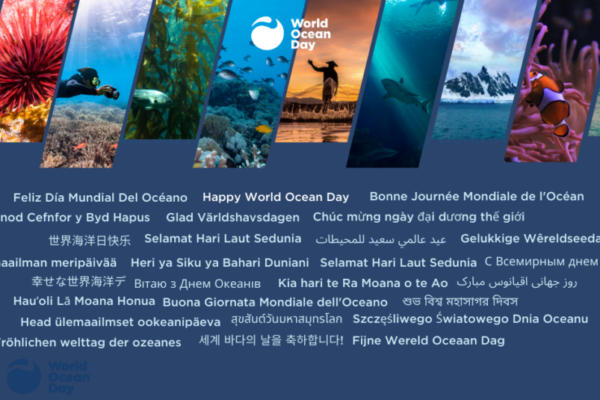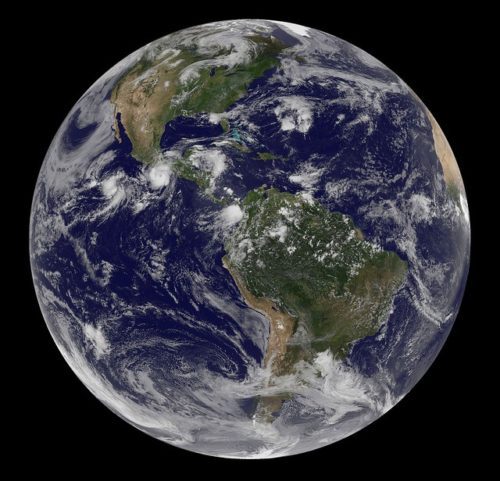Guest blog by Dr. Stephen M. Coan, Ph.D., President and CEO, Mystic Aquarium
Several species of whales are disappearing from earth at an alarming rate. It is estimated that only 300 to 1,000 northern right whales remain. Southern right, humpback, bowhead, and blue whales all number less than 10,000 for each species.
We have an ethical obligation to reverse this devastating trend of extinction for whale populations. To do so, we must take steps to rapidly advance research aimed at conserving cetaceans in the wild, and enact public policy actions to help whales survive and thrive.
Mystic Aquarium is a non-profit research institution with one of the best teams of scientists in marine mammal research in the world. We study beluga whales as a representative species and have advanced knowledge of the immune systems of whales, stress factors that cause lack of breeding, and other issues related to why whale species are struggling.
Key to our research is having a group of whales under controlled conditions that can be studied easily and efficiently. Recently Mystic Aquarium applied to the U.S. National Marine Fisheries Service for permission to transfer five beluga whales from Marineland Canada to our facility, which is the largest outdoor beluga habitat in the United States and specifically designed for research and care of beluga whales.
Moves like this inevitably attract attention, and that is legitimate. Whenever humans impinge on other species, questions should be raised about whether it is necessary, whether it is in the creatures’ best interest rather than just exploitive, and whether it is being done well.
In this case, the answers are yes, yes and yes.
The fact is that belugas – like other whale species– are endangered or threatened in many parts of the world. Two beluga populations in particular are endangered, one in the St. Lawrence Estuary, the other in a large expanse of water on the coast of Alaska known as Cook Inlet. The threats they face are almost entirely man-made, from noise pollution to the stresses caused by shipping traffic and coastal construction projects.
It is imperative to learn how these and other factors are affecting the belugas’ reproductive systems, stress responses and immune-system capabilities to help us understand what steps can be taken to ensure their survival. Moreover, knowledge that is gathered will help advance international protection policies for other marine mammals.
There is no better place in which to conduct such research than Mystic Aquarium. It is home to the world’s leading marine mammal scientists, animal behaviorists and veterinarians who provide continuous, compassionate care for the belugas they study.
They work in a setting that gives them access to the animals in ways that are impossible in the wild. Mystic’s outdoor, 750,000-gallon Arctic Coast habitat is specially designed and equipped for beluga research. The habitat has naturalistic features and a high standard of water quality that provides a safe, healthy environment for the animals.
The essential research being conducted can only be done with belugas in a controlled setting – there are just too many variables and unknowns in the wild. At Mystic Aquarium we know the whales’ diet, environmental, health and other parameters that provide important reference biological samples and measurements to compare with wild whales. We are also testing sampling techniques, technologies and tools that can be used to more effectively study belugas in the wild.
There is growing interest among policy advocates to create sea sanctuaries for whales and dolphins as opposed to keeping them within aquaria. This concept involves creation of dedicated swaths of ocean that would most likely be penned in and where whales could continue to receive human care.
As compelling as the concept may be, the viability of sea sanctuaries has not been extensively studied from the perspective of animal health and survival. There are serious concerns about the impact of designated sanctuaries on the eco-system of wild habitats, the capacity of the immune systems of animals released to a sanctuary to survive in wild settings, and the viability of the long term cost of care.
To answer these questions, Mystic Aquarium is committing resources over the next five years to study the feasibility of sea sanctuaries. The very research that we will be conducting with the transferred whales will help to advance knowledge and understanding about the viability and potential best practices for sea sanctuaries.
Mystic Aquarium and our world class scientists uphold the highest ethical standards. We believe that the proposed transfer of animals will rapidly advance knowledge to stem the tide of extinction of whales.




